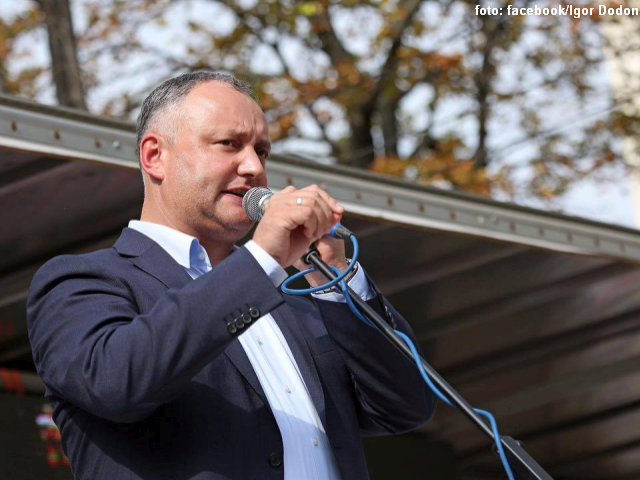The Republic of Moldova Looking towards the East
Igor Dodon pays to Moscow his first foreign visit as president of the Republic of Moldova.

Roxana Vasile, 18.01.2017, 13:29
In late December,
Igor Dodon was sworn in as President of the Republic of Moldova. The head of
the former Soviet state with a predominantly Romanian-speaking population made
a stormy entrance into his new office. Although in 2013 the Constitutional
Court of Moldova ruled that the Romanian language was the official language of
the Republic, Igor Dodon replaced it, on the site of the presidency, with the
so-called Moldovan Language. Also, he felt the urge to settle accounts with the
former president of Romania Traian Basescu, by withdrawing his Moldovan citizenship,
only two months after the latter had obtained it.
Also, as a continuation of the speeches held during the election
campaign against the Association Agreement with the EU, he decided to remove
the EU flag from the entrance of the Republic’s Palace in Chisinau. On the
other hand, in order to reconfirm his pro-Russian orientation, Igor Dodon chose
to pay to Moscow his first formal foreign visit as head of state, this being
the first bilateral visit by a Moldovan leader to Russia in the past 9 years.
Igor Dodon’s main goal is to resume the strategic partnership with Russia, left
aside during the term in office of his pro-European predecessor Nicolae
Timofti, to whom the rapprochement with the EU, with help from Romania, was a
priority.
On Tuesday,
president Dodon was received at the Kremlin by his Russian counterpart Vladimir
Putin, to whom he said that the Association Agreement between the Republic of
Moldova, concluded in 2014, could be revised or even cancelled after the next
parliamentary elections in Chisinau, provided they are won by the Socialists’
Party, whose leader he was until taking over the office of president. In Igor
Dodon’s vision, the association agreement with the Europeans has not benefited
the Republic of Moldova in any way. On the other hand, Chisinau would get
considerable advantages if part of the Eurasian Economic Union and president
Dodon asked for Putin’s support for Moldova to get the status of observer.
Moscow, too, granted Igor Dodon’s visit a higher political status, which could
be seen in the way in which the visit was organized, the list and format of
talks. Vladimir Putin offered Dodon a historical map of the Republic of
Moldova, as it was back in the 18th century, which made Dodon state
that half of the current territory of Romania is Moldovan. Pundits say that
Dodon is in Moscow to approach issues that are of interest not to Moldova, but
to Moscow. The fact that the official delegation does not include any member of
the Government is evidence enough that Igor Dodon is on his own and does not
act as a representative of the state.






























